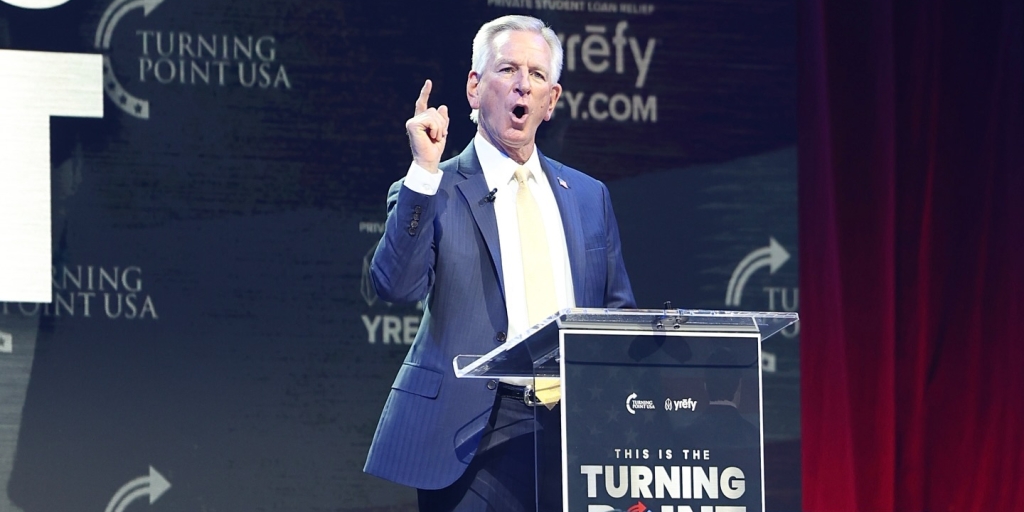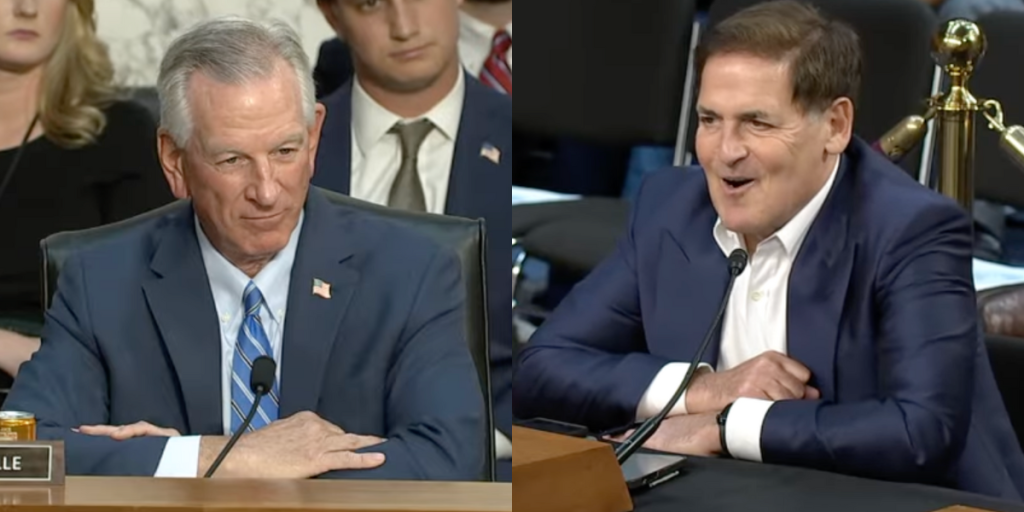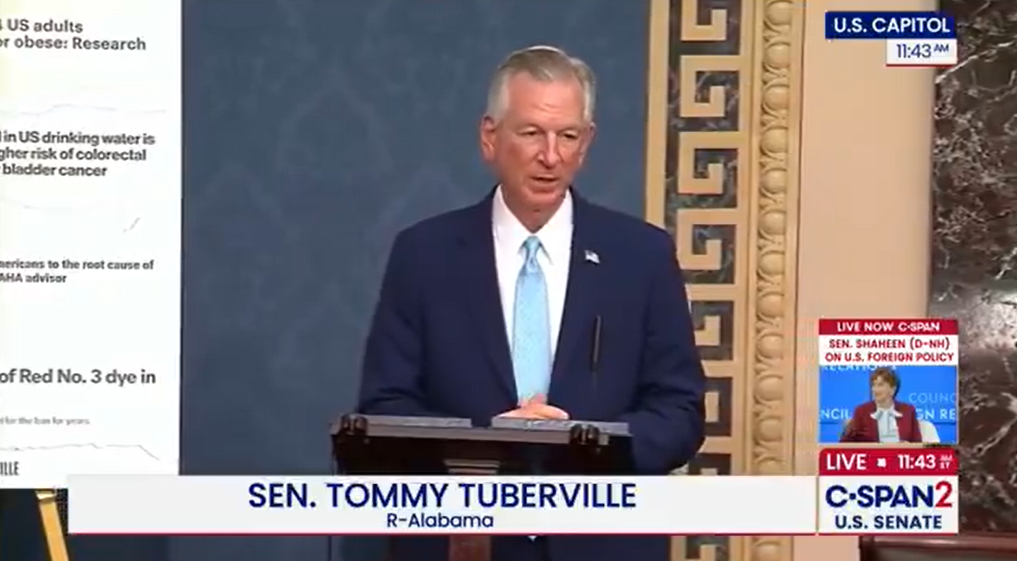Sen. Tommy Tuberville is asking the Biden administration to void a new rule he believes will harm Alabama’s coastal businesses.
The controversial rule in question creates a a 28,000-square-mile Critical Habitat for the Rice’s whale within the Gulf of Mexico. However, some in the state, including Tuberville, believe that there is not enough evidence the Rice’s whale is being harmed on a scale large enough to warrant the Critical Habitat designation.
“Designating a Critical Habitat for the Rice’s whale throughout this expansive area will impose undue burdens and restrictions on all vessel traffic, especially in and out of the Port of Mobile,” said Tuberville. “The Port of Mobile covers over 4,000 acres, generates nearly 313,000 jobs, provides approximately $2 billion in state and local tax impacts, and $85 billion in economic value to Alabama as a whole.
“Requiring all lessees and operators to comply with reduced speeds of 10-knots or less and preventing them from traveling after dusk and before dawn within the designated areas will detrimentally impact our nation’s ability to domestically produce oil and gas in hopes of becoming energy independent.”
Maggie Oliver, vice president of Communications and Federal Affairs of the Alabama Port Authority, said the rule would have a devastating effect on the port and the nation.
“Whether cars and fuel or forest products and steel, the State of Alabama and its Port are critical players in the global supply chain,” Oliver said. “Federal advocacy on this issue is key to preventing a rule that, if implemented, would bring operations at the Port of Mobile to a virtual standstill and upend the delivery of consumer goods and energy resources nationwide.
“Any potential rulemaking should be structured so as not to impede economic development in Alabama nor hinder our nation’s economic competitiveness globally.”
The Consumer Energy Alliance threw its support behind Tuberville’s efforts.
“CEA thanks Senator Tuberville for urging NOAA and BOEM to drop the proposed expanded critical habitat designation for the Rice’s Whale in the Gulf of Mexico,” said CEA Vice President Kaitlin Hammons. “Without more clear scientific data, this expanded designation is not warranted and would be unprecedented due the lack of scientific evidence and overwhelming economic impact.”
The National Ocean Industries Association said Tuberville was standing up for energy workers throughout the Gulf of Mexico.
“The Gulf of Mexico oil and gas industry is responsible for hundreds of thousands of high-paying jobs and production of some of the world’s least carbon-intensive barrels,” said NOIA President Erik Milito. “There is noted lack of ample scientific evidence supporting the expansion of the Rice’s Whale protected area.
According to NOAA, there are approximately 50 Rice’s whales left in existence, deeming them endangered and in need of certain protections covered by the Endangered Species Act and the Marine Mammal Protection Act.
Rice’s whales are found in the northeastern Gulf of Mexico between 100 and 400 meters in depth. Their specific locations and habitat are unclear.
Austen Shipley is a staff writer for Yellowhammer News.













